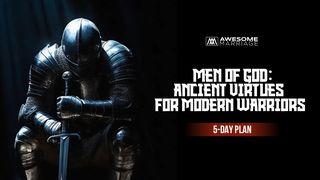God's Purpose For the FamilySample

Before the industrial revolution, when economic work was performed within the household, both men and women spent most of their time in the home and its outbuildings. Fathers were actively involved in childrearing, and mothers were making economic contributions without needing to put their children in day care. Work was not the father’s job; it was the family industry. Often the living quarters were in one part of the house, with offices, workshops, or stores in another part of the same house. Husband and wife worked side by side, not necessarily at identical tasks, but sharing in a common economic enterprise.
It is by living in a household, with its interconnected duties and dependencies, that we are trained in the ways the Church is meant to operate. Recovering a vision for the household is no easy task. There is a reason the New Testament Christians greeted one another as brothers and sisters of the one Father God. There is a reason the relationship between the Christ and the Church is symbolized as a marriage. There is a reason Paul addressed the Church as “members of the household of God” (Eph. 2:19).
Consider the passage telling fathers to bring up their children “in the nurture and admonition of the Lord” (Eph. 6:4, KJV). As we lose the very concept of the household, we are losing the “school” that trains us how to function with love and responsibility beyond the household. Even specific verses in the Bible cannot be understood without knowing something about the pre-industrial household.
It is difficult for the modern office worker or factory worker who is gone from home all day to be their children’s teacher in the way the Bible writers had in mind. They were thinking of fathers who spent the entire day with their wives and children—the kind of childhood Jesus would have experienced—working daily with his father in a carpenter’s shop. We need to think carefully how much we have let our lives be captive to modern history and economic structures.
-Nancy Pearcey
About this Plan

In this short plan, based on excerpts from C.R. Wiley's book The Household and the War for the Cosmos, we see how the family meant something very different in Biblical times, and that building your household is a key part of the way God is restoring the world.
More
Related plans

From Acceptance to Approval: Living a Life That Pleases the Father

Islands, Tides, and the Deep: A Marriage Message From the Sea

Men of God: Ancient Virtues for Modern Warriors

Be Ye Holy: The Holy Spirit's Role in Our Lives

Overcoming Suffering

Living With a Strong-Willed Child

Be Still and Know: 7 Days to Recenter Your Heart on God

Healing From God

Alive and on Fire - a Video Devo With Illusionist, Dustin Tavella
